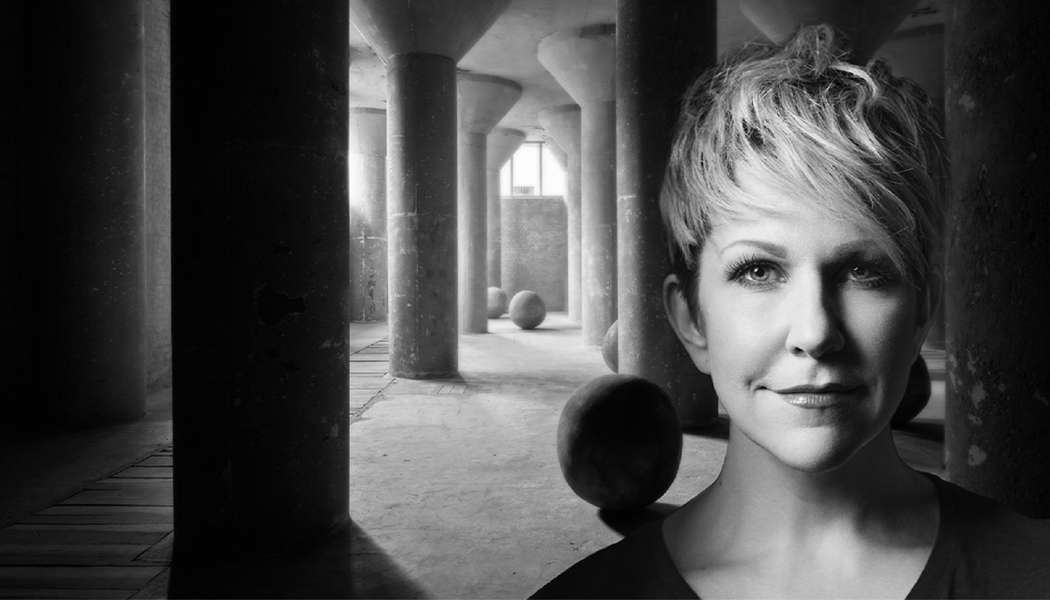- Johann Sebastian Bach
- Hans von Bulow
- opera
- Edvard Armas Järnefelt
- Bernstein: Chichester Psalms
- Christophorus
- Russell Hepplewhite
- Michel Merlet: Le roque de sol-ut-ré
 VIDEO INTERVIEW: Ona Jarmalavičiūtė talks to American choral conductor Donald Nally, director of The Crossing, in this fascinating, illustrated, one hour programme.
VIDEO INTERVIEW: Ona Jarmalavičiūtė talks to American choral conductor Donald Nally, director of The Crossing, in this fascinating, illustrated, one hour programme.
 DISCUSSION: What is a work? John Dante Prevedini leads a discussion about The performing artist as co-creator, including contributions from Halida Dinova, Yekaterina Lebedeva, Béla Hartmann, David Arditti and Stephen Francis Vasta.
DISCUSSION: What is a work? John Dante Prevedini leads a discussion about The performing artist as co-creator, including contributions from Halida Dinova, Yekaterina Lebedeva, Béla Hartmann, David Arditti and Stephen Francis Vasta.
Absolute Purity of Tone
American mezzo Joyce DiDonato's Met Stars Live recital from Germany, reviewed by MARIA NOCKIN
On Saturday 12 September 2020, mezzo-soprano Joyce DiDonato gave an online recital from Bochum, Germany with accompaniment by pianist Carrie-Ann Matheson and the Baroque chamber group Il Pomo D'Oro (The Golden Apple). Most recently, DiDonato starred in the title role of Handel's Agrippina at the Metropolitan Opera.
The artists performed live at Bochum's Jahrhunderthalle (Century Hall) in Germany's Ruhr area. After decades of use as a gas-fired power plant, the building was converted into a festival theater with a light-flooded foyer, modern infrastructure, and elaborate technical equipment that complemented its industrial charm.

Joyce DiDonato in the Jahrhunderthalle, Bochum, Germany
DiDonato appeared wearing a simple but elegant black chiffon trouser outfit that allowed her to move comfortably around her performance area. She opened her program with a sad, almost vibrato-free rendition of 'Addio Roma' (Good-bye Rome) from Monteverdi's 1643 opera L'Incoronazione di Poppea.
She followed it with the final scene from Berlioz's Les Troyens in which Didon stabs herself with Énée's sword to the horror of her people. At the moment of her death, Didon has one last vision: Carthage will be destroyed, but Rome will be immortal.
Adding one more song in a similar mood, Gustav Mahler's Ich bin der Welt abhanden gekommen (I am lost to the world), DiDonato pulled the audience into her world of dreams and meditation with incredible breath control and pianissimo singing.
The Met then showed a video clip from their Live in HD presentation of Gaetano Donizetti's Maria Stuarda. Di Donato sang a shattering rendition of her character's second act scena with the Met chorus and orchestra conducted by Maurizio Benini. The clip showed the artist in a very different light while giving her a tiny break in her recital.
She continued with the traditional American Oh Shenandoah which she sang with absolute purity of tone. Her vocal choices reminded me of the pristine nature that once covered the New World.
Returning to the Old World, DiDonato and the Pomo D'Oro performed Irene's da capo air 'As with rosy steps, the morn' from Handel's oratorio Theodora. In this aria showing Irene's decision to stand her ground despite death threats, DiDonato sang the repeat section with graceful and intriguing decorations.
'Illustratevi, o cieli' (Show it, O heavens) from Monteverdi's Il Ritorno d'Ulisse in Patria is Penelope's aria on the return of her husband. With exquisite coloratura, DiDonato's character calls upon the birds to sing and the rivers to murmur because the Phoenix has risen from its ashes.
In 'Dopo notte atra e funesta' (After a terrible and fatal night) from Handel's Ariodante, perhaps referring to the current COVID problem, DiDonato, as the title character, jubilantly hailed a new bright day after the darkness of night. Having plenty of room in this setting, DiDonato literally danced with joy as she sang a filigreed da capo section.
At this point the program switched from live music to a recorded feature. DiDonato spoke with Sister Helen Prejean CSJ, who wrote the original book that became the movie and then the opera, Dead Man Walking. The mezzo also talked with Kenyatta Hughes whose song I Dream a World to words by Langston Hughes she premiered immediately afterward. The music to the new song is interesting in that it is slightly reminiscent of a Spiritual while maintaining its own unique qualities. It was a lovely piece with piano and cello accompaniment arranged by Craig Terry.
I noticed that the Pomo D'Oro cellist then left his modern cello near the piano and walked back to the antique instrument he had left at his chair in the baroque group. Then we heard Orontea's aria 'Intorno all'idol mio' (Around my idol) from Antonio Cesti's 1656 opera Orontea, completing the singer's presentation of Baroque music.
The final group contained some unusual combinations: 'Voi che sapete' (You who know) from Mozart's Le Nozze di Figaro and Craig Terry's arrangement of La vie en rose (The rose-tinted life) by Louiguy (Louis Guglielmi) were sung in different styles, as were the Canción al árbol del olvido (Song to the tree of oblivion) by Alberto Ginastera and Terry's arrangement of 'You'll Never Walk Alone' From Rodgers and Hammerstein's Carousel. Most importantly, all were delightful to hear.
I'm finding this series quite fascinating because singers' recitals with piano or a small group of musicians allow the audience see them in different aspects from those seen on the opera stage. Although I cannot wait to go to the theater for opera again, I hope these online recitals will continue as well. This recital can still be enjoyed at Met Stars Live for US$20 until 24 September 2020.
Copyright © 15 September 2020
Maria Nockin,
Arizona USA

FURTHER NEW YORK METROPOLITAN OPERA REVIEWS
FURTHER ARTICLES ABOUT GERMANY


